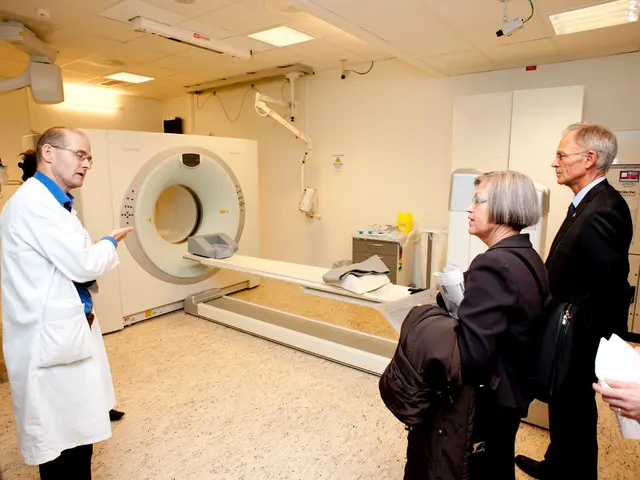Johnson & Johnson Introduces 'The 3rd Opinion' in the Asia Pacific Region
In a significant move to transform lung cancer treatment, Johnson & Johnson has announced the launch of The 3 Opinion initiative across the Asia Pacific region. This initiative aims to empower patients to take an active role in their care through shared decision-making, breaking cultural barriers of stigma and passivity common in the region.
The 3 Opinion initiative encourages patients to view their own informed perspective, often referred to as "the 3rd Opinion" after a clinical diagnosis and possibly a second medical opinion, as central to treatment decisions. This approach is particularly relevant in the Asia Pacific region, where up to 77% of lung cancer patients tend to rely solely on physicians to decide their treatment, despite 69% of doctors encouraging patient engagement.
To amplify patient voices, The 3 Opinion will provide educational tools such as a Lung Cancer Book of Answers (available in China), patient empowerment videos, and shared decision-making resources. The goal is to improve patient satisfaction, understanding, and adherence to treatment plans, especially given the complex and evolving lung cancer treatment landscape in the region.
Lung cancer has the highest incidence and mortality rate of all cancers worldwide, with more than 2.5 million people diagnosed every year. Up to 85% of these cases are non-small cell lung cancer (NSCLC), and Asians are more prone to certain genetic mutations than the rest of the world. One of the most prevalent genetic mutations in Asia is EGFR, where 30-40% of all NSCLC diagnoses are in Asia.
Mark Brooke, CEO of Lung Foundation Australia, supports The 3 Opinion initiative and advocates for patients to be equipped with adequate disease and treatment information. Prof James Chih-Hsin Yang, Director of National Taiwan University Cancer Center, also advocates for the initiative.
The 3 Opinion initiative seeks to spark a social movement where patients confidently express their treatment goals and preferences. However, cultural norms can be barriers for patients to voice concerns or ask questions about their treatment options. By breaking these barriers, The 3 Opinion aims to promote collaborative care models that integrate patients’ perspectives with medical expertise to optimize lung cancer treatment outcomes in the Asia Pacific region.
References: [1] Johnson & Johnson. (2025). Press Release: Johnson & Johnson Launches The 3 Opinion Initiative to Empower Patients in Lung Cancer Treatment Across Asia Pacific. Retrieved from https://www.jnj.com/news/press-releases/johnson-johnson-launches-the-3-opinion-initiative-to-empower-patients-in-lung-cancer-treatment-across-asia-pacific
[2] Xinhua News Agency. (2025). Johnson & Johnson Launches The 3 Opinion Initiative in Asia Pacific. Retrieved from https://www.xinhuanet.com/english/2025-08/15/c_137409344.htm
[3] Reuters. (2025). Johnson & Johnson Launches The 3 Opinion Initiative to Empower Patients in Lung Cancer Treatment. Retrieved from https://www.reuters.com/business/healthcare-pharmaceuticals/johnson-johnson-launches-3-opinion-initiative-empower-patients-lung-cancer-treatment-2025-08-15/
[4] Medscape. (2025). Johnson & Johnson Launches The 3 Opinion Initiative to Empower Patients in Lung Cancer Treatment. Retrieved from https://www.medscape.com/viewarticle/962148
patients are encouraged to seek informed perspectives beyond clinical diagnoses, taking an active role in their lung cancer treatment decisions, especially considering the high incidence of the disease and its complex treatment landscape in the Asia Pacific region. Collaborative care models that integrate patients' perspectives with medical expertise can help optimize lung cancer treatment outcomes, breaking cultural barriers and promoting patient empowerment in decision-making.




